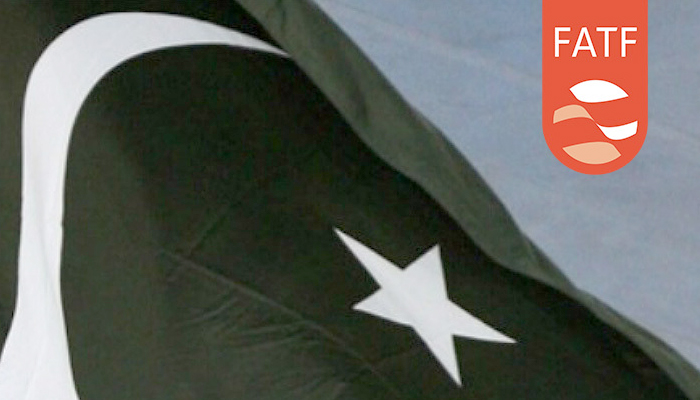TRENDING TAGS :
Pakistan unlikely to exit FATF's grey list: Report
Pakistan may remain on the grey list of the Financial Action Task Force (FATF) as it has been unable to comply with six of the 27 points in the global terror financing and money laundering watchdog's action plan, a media report said on Wednesday.
Islamabad: Pakistan may remain on the grey list of the Financial Action Task Force (FATF) as it has been unable to comply with six of the 27 points in the global terror financing and money laundering watchdog's action plan, a media report said on Wednesday.
The Paris-based global watchdog will hold its virtual plenary session from October 21 to 23. It will review Pakistan's progress on the 27-point action plan.
The FATF had placed Pakistan on the grey list in June 2018 and asked Islamabad to implement a plan of action to curb money laundering and terror financing by the end of 2019, but the deadline was extended later on due to the COVID-19 pandemic.
"The country will succeed in exiting the FATF's grey list by June next year," The Express Tribune reported, quoting diplomatic sources.
The report said Pakistan is unlikely to exit the FATF grey list, but the country has managed to avert being blacklisted.
It said that the country had completed its legal formalities and informed the watchdog that it had managed to comply with 21 of the points in the action plan.
Pakistan has succeeded in making 20 per cent progress in the remaining six points of the action plan, it said.
The country has complied with the points related to money laundering. The remaining six points pertain to terrorism financing.
The International Cooperation Review Group of the FATF has acknowledged that Pakistan had complied with 21 points of the action plan, the report said.
Seeking to wriggle out of the FATF's grey list, debt-ridden Pakistan in August imposed financial sanctions on 88 banned terror groups and their leaders, including 26/11 Mumbai attack mastermind and Jamaat-ud-Dawa (JuD) chief Hafiz Saeed, Jaish-e-Mohammed (JeM) chief Masood Azhar and underworld don Dawood Ibrahim.
Pakistan won a three-month further extension to complete FATF's 27-point action plan because of the coronavirus pandemic.
The deadline was June this year, but the FATF extended it due to the postponement of its plenary.
In February, the FATF gave Pakistan, which missed 13 targets, a four-month grace period to complete its 27-point action plan against money laundering and terror financing committed with the international community.
In its third plenary held virtually in June, the FATF decided to keep Pakistan in the grey list as Islamabad failed to check flow of money to terror groups like Lashkar-e-Taiba (LeT) and Jaish-e-Mohammed (JeM).
With Pakistan's continuation in the 'grey list', it is increasingly becoming difficult for the country to get financial aid from the International Monetary Fund (IMF), World Bank, Asian Development Bank (ADB) and the European Union, thus further enhancing problems for the nation which is in a precarious financial situation.
In July, Pakistan's Senate unanimously approved two bills related to the tough conditions set by the FATF. In August, Parliament's lower house passed four FATF-related bills as part of the efforts by Pakistan to move from the FATF's grey list to the white list.
In September, the joint session of the Parliament amended about 15 laws to upgrade its legal system matching international standards as required by the FATF.
Pakistan needed 12 votes out of 39 to exit the grey list and move to the white list. To avoid the blacklist, it needs the support of three countries. China, Turkey and Malaysia are its consistent supporters.
If the FATF in its meeting finds that Pakistan has failed to meet its requirements, there is every possibility that the global body may put the country in the 'Black List' along with North Korea and Iran.
In August, Prime Minister Imran Khan had warned that if blacklisted at the FATF, Pakistan's entire economy will be destroyed due to inflation and a massive fall in Pakistani Rupee.
The FATF is an inter-governmental body established in 1989 to combat money laundering, terrorist financing, and other related threats to the integrity of the international financial system. It currently has 39 members including two regional organisations - the European Commission and Gulf Cooperation Council.
India is a member of the FATF consultations and its Asia Pacific Group.



